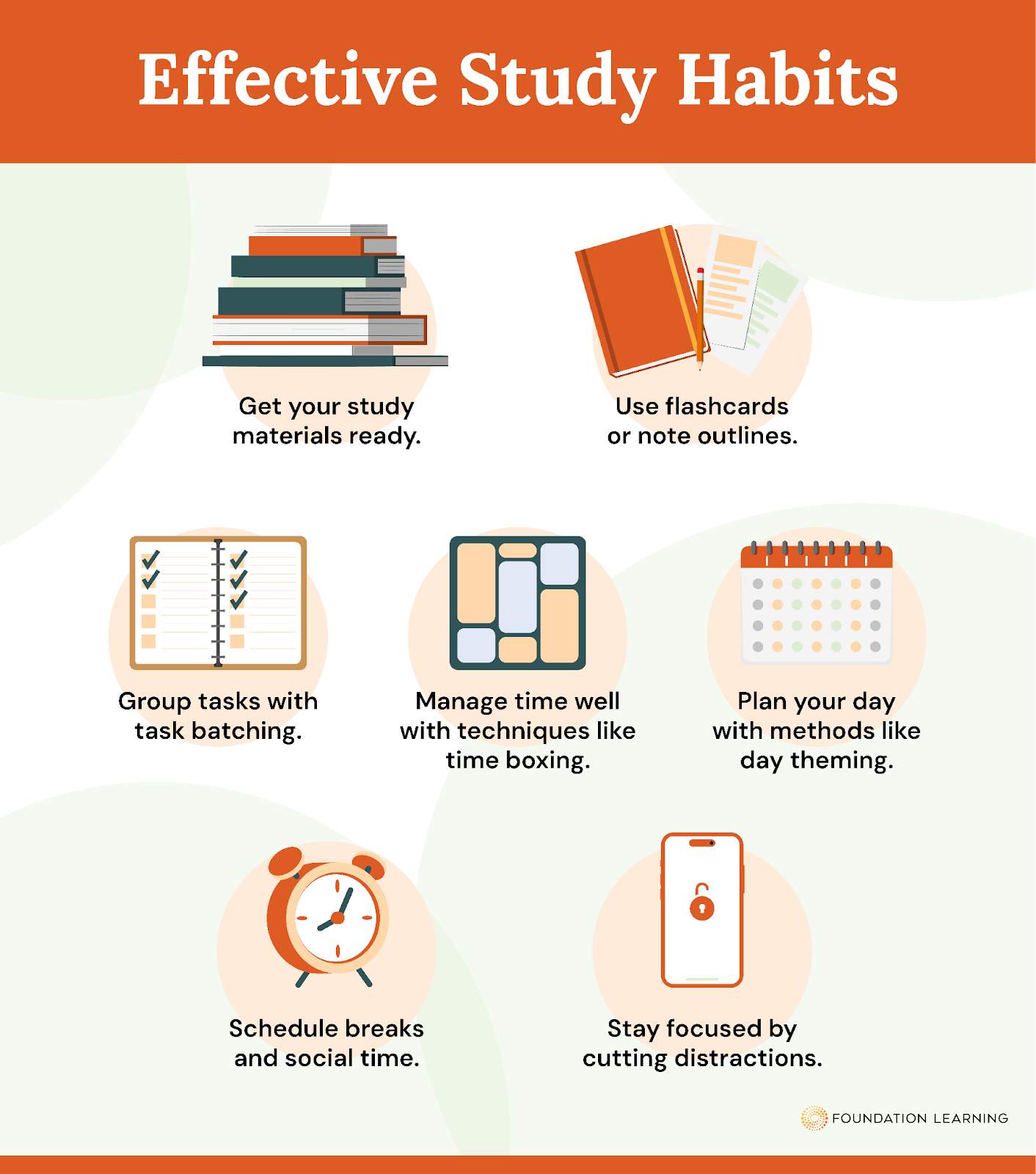How to Build Better Study Habits

Studying effectively isn’t just about spending long hours with your books it’s about building smart habits that help you learn faster, stay focused, and remember more. Whether you’re a student preparing for exams or someone learning new skills, good study habits can make all the difference.
Here are practical tips to help you build better study habits.
1. Create a Study Schedule
•Set aside specific times each day for studying.
•Use a planner or calendar to track assignments and exams.
•Stick to your routine so studying becomes a natural habit.
2. Find a Quiet Study Space
•Choose a place free from distractions like TV, social media, or noise.
•Keep your desk clean and organized.
•A dedicated study spot trains your brain to focus when you sit down.
3. Set Clear Goals for Each Session
•Break big tasks into smaller, achievable goals.
•Example: instead of “study biology,” try “review Chapter 3 notes and practice 10 quiz questions.”
•Small wins keep you motivated.
4. Use Active Learning Techniques
•Summarize what you read in your own words.
•Teach the material to someone else—it helps you understand better.
•Practice with flashcards, quizzes, or past exam questions.
5. Take Regular Breaks (Pomodoro Technique)
•Study for 25–50 minutes, then take a 5–10 minute break.
•After 3–4 sessions, take a longer break (20–30 minutes).
•Breaks prevent burnout and improve concentration.
6. Stay Organized
•Keep your notes, assignments, and books in order.
•Use folders, binders, or digital apps like Notion, Evernote, or Google Keep.
•Being organized saves time and reduces stress.
7. Stay Healthy for Better Focus
•Get enough sleep rest improves memory.
•Eat brain-boosting foods like nuts, fruits, and vegetables.
•Stay hydrated and exercise regularly to keep your energy up.
8. Limit Distractions
•Turn off unnecessary notifications on your phone.
•Use productivity apps like Forest, Freedom, or Cold Turkey to block distractions.
•Let friends and family know when you’re studying.
9. Review Regularly
•Don’t cram the night before exams.
•Review your notes daily or weekly to strengthen memory.
•Spaced repetition helps you remember for the long term.
10. Reward Yourself
•Celebrate small wins after completing tasks.
•Rewards could be a snack, a short walk, or watching an episode of your favorite show.
•Positive reinforcement keeps you motivated.





